The debate about farm size in Africa, kicked off by Stephen Carr’s blog post "African Agriculture: Does farm size really matter," has sparked discussions far beyond the “size” issue. With over 100 comments generated on LinkedIn groups, we’d like to share some of the prominent points made with our larger blog audience.
Association for International Agriculture and Rural Development (AIARD)
Commenters in the AIARD LinkedIn group engaged in a vibrant debate on rural-urban migration and its effect on farm size.
Pro Large Farms
Proponents of large farms argued in favor of rural-urban migration. Urban migration, they contended, makes more land available for large food production. The few rural people that remain “will have large farms to practice commercial agriculture.”
Others support the growing urban migration because it reduces pressure on already over-cultivated farmland in Africa. One commenter stated that over-cultivation of farmland in Africa has led to soil erosion due to destructive pressure on the land by the impoverished, as they are unable to afford adequate amounts of fertilizer, let land fallow or plant cover crops.
There was a clear sentiment that supporting small farms and subsistence farming would keep people in poverty. As one commenter writes, “Subsistence farming will never be anything but poverty, and farm size is what keeps many small farmers from adopting productivity-enhancing modernisations. Many Westerners tend to romanticize smallholder farming, but that just keeps people poor.” He continues, “trying to stop poor farmers moving to cities by tinkering with their systems is just a way to keep them poor a little longer. Ultimately they need off-farm income sources.”
Pro Small Farms
Those in support of small farms site that most of the African population depends on subsistence agriculture for their livelihoods. Therefore, we should focus on improving technology to enhance these existing systems. Others argue against rural-urban migration, claiming that cities in Africa are not well-planned, making it difficult for them to absorb unskilled rural migrants without endangering political stability. The African government will need to look into rural-urban migration before it is actively promoted.
One commenter was even in favor of the opposite—urban-rural migration—writing that African governments should provide the necessary infrastructure in rural areas to depopulate the “growing unproductive population in African cities.” But, as opponents of urban-rural migration may counter-argue, would this keep a greater number of people in poverty?
Cooperatives were avidly put down in this group. One commenter recommended exploring cooperatives, citing their success with thoughtful planning in the US and Africa. Others jumped in quickly and claimed that cooperatives have not worked for farmers, who consistently show to market collectively but do not produce collectively “as they insist on being in charge of their own production.”
This group is more in favor of small farms. Due to the large population of rural farmers in Africa, a mass of smallholders will be unemployed if small farms disappear. Others site that credit availability is the key to smallholder success and should be promoted. Some emphasize a focus on
Natural Resource Management Professionals
One commenter writes:
“It is akin to asking these questions:
1. Is a centralized air-conditioning system better than 15 room air-conditioners in a large opera hall?
2. Is it beneficial to have a 2 meter dia pizza for a team of 15 people or to order a small pan pizza of choice to every individual?
3. Will it be better if a lion chases and kills a giraffe for his clan or every member chasing a hare for food ?
4.Will it be beneficial if 150 african farmers cultivate one hectare each or give 150 hectares to a corporate giant and wait for the allotted quota of grains?
5. Will it be in the interest of people to give primary education to 150 african children or to send one to Oxford for higher education?
Others can add more Qs.”
This group engaged in greater discussions about market access. Many smallholders produce what their ancestors did and not what is demanded in the markets, one commenter writes. In order to improve small farms, there needs to be more informed decisions from farmers. Connections and access to markets must be improved alongside the ability of farmers to respond to the market. But another commenter prefers large-scale farms “simply because with the right hybrid approach it can be engineered to be forced to accord the best optimization.”
"There is a clear clash here between agricultural efficiency which favours large farms, and social equity which favors small.”
This comment seems to aggregate a number of sentiments into one sentence. Large farms are controlled and owned by the wealthy or large companies, which not only have the potential to push the poor out, but they can also control the ownership and profit division.
So what does this mean?
Of course there is no simple answer. From the perspective of the CGIAR Research Program on Water, Land and Ecosystems (WLE), the issue is about access, security and sustainability. Farmers should have access to inputs (credit, resources, markets) to be able to plant what they are able to sow. Farmers should also have security, land and food so that they are not forced into decisions. Finally, there is also a need to look at the impact of local farming systems on the wider environment.
As WLE begins to design its focal regions in the Volta/Niger and the Nile River Basins, the issue of farm size and rural-urban transfers will be key components of the debate. We welcome everyone to continue the discussion here.



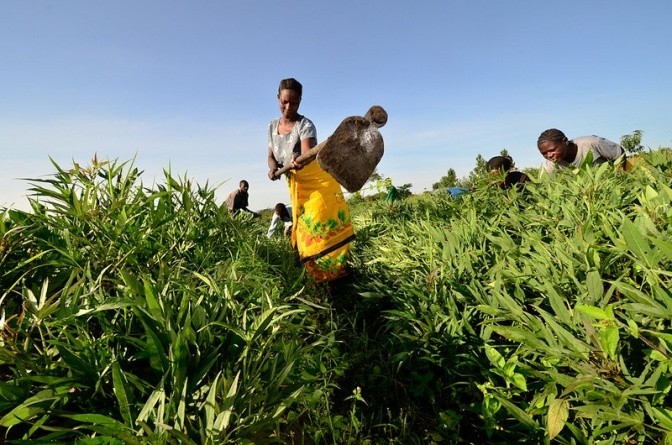
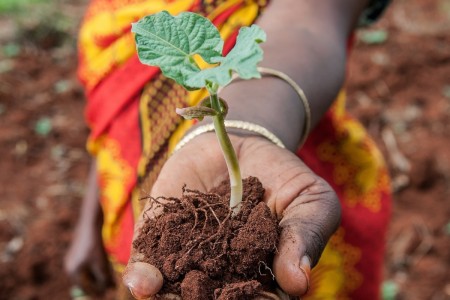

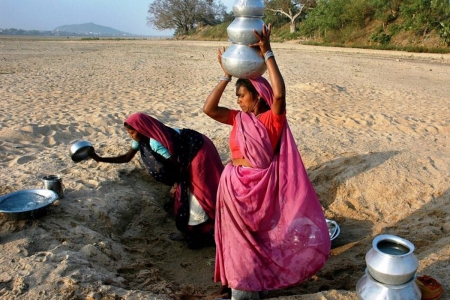



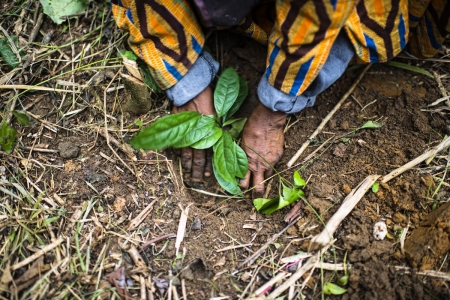
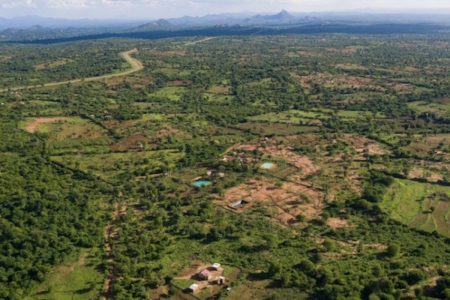

Comments
I do think that farm size is matter , in Sudan for instance , the community is extended family based , and the whole family is depending on the land they inherited , so they allocating it to small parcels to cultivate it independently, this characteristics make the process of technology transfer more difficult
Farm size does matter. To increase agricultural as persentage of GDP you have to increase the size of the farms. Depending on labour policies this will also increase the potential for emplyment. The increase in agriculture will increase potential to be self sufficient in food supply, etc.
There is no direct relationship between farm size and income of the farm holder in African.In fact, most people in Africa hold large chunks of land not necessarily for production.Some of the key factors for having large pieces of land include: Burial ground,prestige or practice archaic forms of farming like shifting cultivation and overstocking.Surely,the size of land is not the basic issue for an 'African' I know!
Thanks for this recap. It's not clear what this means for policy-making though. Will donors and host governments continue to put their development resources into small farms, or will they invest in urban and industrial modernisation to generate income and provide a better life?
I hope the choice does not come across as one between subsistence farming and industrial agriculture. I hope that that medium-scale family farms with technological and marketing optimisation are included among the choices.
Comment originally posted on the AIARD LinkedIn Group
Of course, small farmer orientation is extremely relevant to many respects and serius consideration for it is the need of the day for technology generation and policy planners. If however, the corporatisation and consilidation is the goal, then there is no debate. The pre-dominance of small farmers is an universal phenomenon at present and there is an unanimity that majority of the farming system is small-holder based in in many individual countreis as well as globally too (for instance, the proprotion of small farmers in India 82% plus. THis certainly has policy imperatives and calls for urgent need for small-farm friendly technological innovation for ensuring food security at household level and sustainability. Large-scale input intensive Green revolution story reminds us of its externality in the present context, which has shown gradual deceleration of productivity and degradation of natural resources. Big tractor, Combine harvester, laser leveller etc are not relevant for small farm of 1 or 2 acre holdings, which is the majority. In the absence of collectivisation and social institutions, custom services also often ineffective. THus it give strong signal for farmholder technology options, which is the R&D (A4RD) challenge for enbling upscaling.
Its a rare African Government that can ignore the fact its population (and electorate) is made up of small growers. Without something to drive industrialization urbanization equates to political risk. These two factors combine to require that Agriculture policy starts with the present status quo - small holders - and takes a developmental and transformative track rather than radically shifting to a commercial or even corporate model. This framework will allow the time needed for land tenure reform, and new appropriate models of small scale finance. Concurrently implementing technical change is important but should not be expected to have the revolutionary results seen in India. What is required in most African situations is a better understanding of, and plans to address, ineffective market mechanisms. The ubiquity and vagueness of plans to support "market links" is a serious weakness at present. This is where revolutions can pay dividends. Incentives to restructure how can get to the farm gate. Clear delineation of what governments will do and where investment is needed. Once those markets start to turn growth will become organic and the sector will adjust naturally. With the right strategies in place Small Holder Agriculture is not only the the best choice vis a vis commercial its THE crucial platform for National Agendas.
African farmlands varies from coastal, mangrove soils to dry desert like soils. The fact that Sahara desert occupy approximately 30% of the land mass should be of concern. The remaining 70% had also been subject of intrusion for road, urban development, mining, etc. Ironically, African population has been growing exponentially over the last few decades, despite high level of poverty. Soils are generally developed from low base - cation basement complex with high rate of organic matter loss, producing soils with low fertility. The capacity to naturally support highly productive farming as observed in the North American prairie is lacking. Based on these constraints, I will strongly support small size farms coupled with technological advancement to ensure African food security. African ecosystem and soils seems to be on the high risk end of resilience gradient, with little capacity to withstand the demand for extensive cultivation. Low income farmers also will not be able to manage consequential ecosystem price of large scale agriculture such as groundwater - fertilizer pollution, air quality degradation, etc.
On the basis of these constraints, lets start working toward technology that will support the status quo in Africa. Support for existing small scale farms with objective of better productivity can be achieved with adequate income to still support the African family.
Add new comment